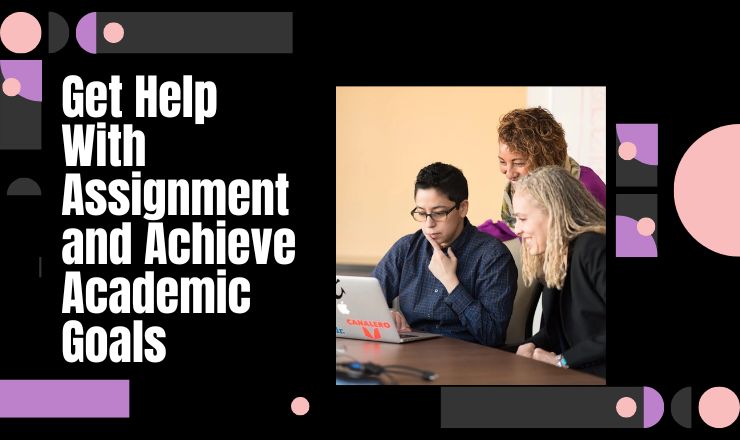Introduction to Technical Interview as a Service India
Hiring the right technical talent is one of the biggest challenges for IT companies in India. From startups to established tech giants, everyone struggles to identify candidates with the right skills and mindset. That’s where technical interview as a service India comes in—a focused hiring support model where trained interviewers handle the technical screening process on behalf of organizations.
This model allows companies to scale their hiring, reduce bias, cut costs, and speed up the recruitment process without compromising quality.
Why Businesses in India Need Technical Interview as a Service
India’s tech industry is growing at an accelerated pace, but talent acquisition hasn’t kept up. Here are some of the most common hiring bottlenecks that make technical interview as a service India a practical solution:
- Time-consuming screening: In-house teams often spend too much time on interviews that don’t convert into hires.
- Lack of standardized evaluation: Interviews vary from one panel to another, resulting in inconsistent judgments.
- Shortage of expert interviewers: Not every company has access to trained technical interviewers with relevant domain knowledge.
- High drop-out rate: Delays in scheduling and feedback often lead to candidate drop-offs.
This is where outsourcing interviews to a skilled service partner can change the game.
How Technical Interview as a Service Works in India
The workflow behind technical interview as a service India is simple yet powerful. It includes the following stages:
- Requirement Gathering: The client shares job descriptions, technical stacks, and candidate expectations.
- Interview Panel Allocation: Based on the requirement, subject matter experts are assigned to conduct interviews.
- Interview Scheduling: The service provider schedules and executes interviews with shortlisted candidates.
- Feedback & Reporting: Detailed reports with scorecards, technical insights, and hire recommendations are shared.
- Integration with ATS: Many providers integrate seamlessly with your Applicant Tracking System for better collaboration.
This model ensures faster, unbiased, and consistent evaluations without burdening internal teams.
Key Features of Technical Interview as a Service India
Several features make technical interview as a service India an attractive option for organizations:
- Domain-specific panels: Interviewers are selected based on their expertise in technologies like Java, Python, DevOps, AI/ML, cloud, data science, and more.
- Structured evaluation frameworks: Interviews follow well-defined rubrics to ensure consistent judgments.
- Real-time coding and problem solving: Candidates are tested with live coding sessions on platforms like HackerRank, Codility, or internal IDEs.
- Bias-free evaluation: Interviewers are trained to evaluate based on skills, not backgrounds or resumes.
- Quick turnaround time: Most interviews are completed within 24–48 hours of scheduling.
- Scalable volume: Whether you need 5 interviews or 500 per month, the model can scale easily.
Industries That Benefit from Technical Interview as a Service in India
This model is industry-agnostic and can be applied to any organization hiring technical talent. Some sectors actively using technical interview as a service India include:
- IT Services and Consulting
- Product Development Companies
- FinTech and HealthTech Startups
- eCommerce and SaaS Companies
- EdTech Platforms
- AI and Data Science Firms
From junior developers to senior architects, the model fits across experience levels and technologies.
Benefits of Using Technical Interview as a Service India
1. Faster Hiring Cycles
Outsourcing interviews means in-house teams spend less time in early screening. Companies can move candidates through the funnel quickly, reducing the time-to-hire significantly.
2. Reduced Interview Load on Internal Teams
Senior engineers are expensive. Involving them in repeated screenings slows down both hiring and product development. Technical interview as a service helps offload this burden.
3. Consistent Quality of Hiring
The use of structured rubrics and trained panels ensures every candidate is assessed uniformly. This minimizes the risk of hiring underqualified candidates due to inconsistent interview quality.
4. Data-Driven Decisions
Detailed feedback reports provide hiring managers with actionable insights, technical observations, and clear hire/no-hire decisions. This supports better decision-making.
5. Increased Offer-to-Join Ratio
Quick and professional interview processes lead to a better candidate experience. This boosts the chances of offer acceptance and reduces the risk of dropouts.
Comparing Traditional Hiring vs Technical Interview as a Service India
| Aspect | Traditional Hiring | Technical Interview as a Service India |
|---|---|---|
| Interview panel | Internal engineers | External domain experts |
| Interview load | High on in-house teams | Fully managed by service provider |
| Consistency | Varies by interviewer | Standardized rubrics |
| Time-to-hire | 4–6 weeks | 1–2 weeks |
| Cost | High (resource-intensive) | Cost-effective and scalable |
| Interview quality assurance | Low | High with trained panels |
| Drop-out rate | Medium to high | Low |
Popular Use Cases in Indian Tech Hiring
Startup Scaling
Fast-growing startups in India often lack the bandwidth to conduct multiple interviews per week. Technical interview as a service allows them to scale hiring without compromising product development.
Campus Hiring
During campus drives, companies face a large volume of candidates in a short period. Interview as a service helps filter top talent using structured online coding rounds and panel interviews.
Contract Staffing Agencies
Recruitment firms and staffing agencies use this service to qualify candidates before submitting profiles to their clients, ensuring better conversion.
Lateral Hiring for Tech Giants
Large MNCs that conduct thousands of interviews monthly use outsourced services to manage bulk hiring pipelines without overloading their tech leads.
Choosing the Right Service Provider in India
When selecting a partner for technical interview as a service India, keep these factors in mind:
- Panel experience: Ensure the interviewers have real industry experience, not just training certifications.
- Customization options: Look for providers who can tailor their rubric and questions to your job roles.
- Platform support: They should support multiple interview platforms and ATS integrations.
- Turnaround time: The provider should commit to a response window (typically within 24–48 hours).
- Feedback quality: Review sample reports to understand how detailed and actionable their evaluations are.
- Compliance and NDA readiness: Make sure they are ready to sign NDAs and handle confidential candidate data securely.
Some of the popular Indian providers include Intervue.io, FloCareer, InCruiter, and BarRaiser, each with varying models and technologies.
Technical Roles Commonly Covered
A good technical interview as a service India setup can handle a wide range of technical roles, including:
- Full-Stack Developer
- Frontend (React, Angular)
- Backend (Java, Node.js, Python)
- DevOps Engineer
- Data Analyst & Data Scientist
- Cloud Engineer (AWS, Azure, GCP)
- Mobile App Developer (Android, iOS)
- QA & Automation Engineer
- UI/UX Designer with tech skills
- Solution Architect & Tech Leads
The flexibility to cover diverse skill sets makes this service ideal for multi-domain companies.
Future of Technical Hiring in India
As hiring becomes more data-driven and candidate-centric, technical interview as a service India will continue to evolve. Integration with AI tools, advanced behavioral analysis, and performance benchmarking will become part of the process.
Companies that embrace this outsourced model will not only hire faster but also build stronger engineering teams without losing internal productivity.
Conclusion
Technical hiring in India is no longer just about resumes and gut feeling. With the rise of technical interview as a service India, organizations now have access to expert interview panels, structured evaluation methods, and faster hiring cycles—all while saving costs and improving hiring quality.
Whether you’re a startup hiring your first developer or a tech enterprise scaling across cities, this model gives you a strong competitive edge. It’s no longer a luxury—it’s a necessity for modern hiring.


